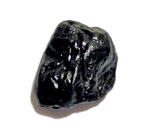No Sedation for Critically Ill, Mechanically Ventilated Patients
Posted by: admin on: October 11, 2011
A Protocol of No Sedation for Critically Ill Patients Receiving Mechanical Ventilation: A Randomised Trial
Continuous sedation is common in mechanically ventilated patients; however, studies have shown that continuous sedation is associated with increased duration of mechanical ventilation when compared with bolus dosing of sedatives. The objective of this study was to determine whether no sedation compared with daily interruption of sedation would shorten the duration of mechanical ventilation.
Methods. Strom and colleagues conducted a single-center, unblinded, randomized trial in critically ill patients requiring mechanical ventilation for longer than 24 hours. Patients were assigned to a no-sedation protocol or to sedation with daily interruption. Both groups received bolus doses of morphine as needed for pain.
Continuous sedation was achieved with propofol, followed by a transition to midazolam after 48 hours. The primary endpoint was number of days without mechanical ventilation in 28 days. Other endpoints included ICU length of stay, need for CT or MRI brain scans, accidental removal of the endotracheal tube, and ventilator-associated pneumonia (VAP).
Results. The no-sedation strategy was associated with a greater number of days (4.2) without mechanical ventilation and a shorter ICU length of stay (9.7 fewer days). There were no differences between groups in the number of accidental extubations, need for reintubation, VAP, or need for head CTs or MRIs. The amount of morphine given to each group likewise did not differ. Delirium and the use of haloperidol were more frequent in the no-sedation group.
Conclusions. In this prospective study in medical and surgical mechanically ventilated patients, a protocol of no sedation increased the number of days free from mechanical ventilation.
Rationale for Selection
Sedation in the critically ill patient is a common treatment strategy in the ICU; however, the use of sedatives can result in adverse events, which makes no sedation an attractive strategy. Although the literature supports a beneficial effect of daily sedation holidays, it is unclear how beneficial a no-sedation strategy would truly be, especially with the finding in this study that delirium was more frequent in the no-sedation group. The findings of this study are provocative and require further investigation involving a multicenter trial.
Read more on: http://www.medscape.com/viewarticle/737336_3
Search
- drchasrani: Difficult to get such a data, authenticated at that. Try Times of India online library
- rakesh pore: hi, where can i get genuine information about "10 most common drugs sold in india?" i want it for a local project
- nilesh dutta: sir, Plz give detail about MBA Sports Management Thanks and Regards


Leave a Reply